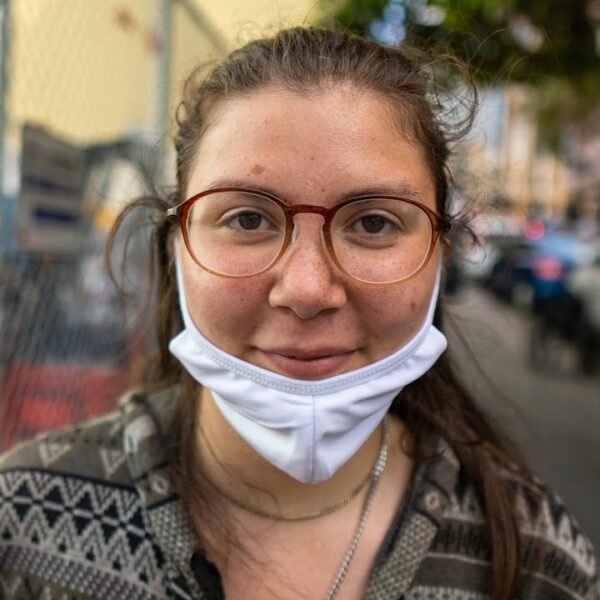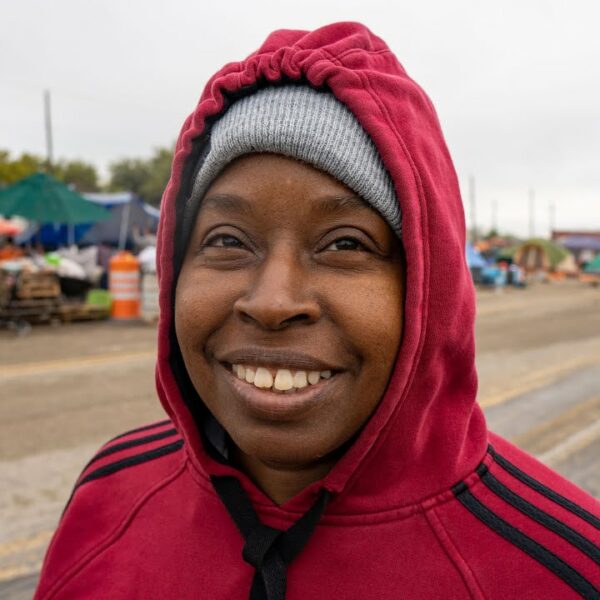Though most of us recognize voting as both a privilege and a right, it is not our favorite thing to do. It happens in the middle of the week, when it can be difficult to make time during work. Campaigns can be complex and hard to follow. And staying on top of registration feels like one more chore.
But those are small nuisances for most of us. For homeless people, voting may seem impossible. It shouldn’t be. In fact, every state makes it possible for homeless residents to vote by not requiring a physical address of residence for voter registration. Applicants in all 50 states can list a shelter, park, or even a vacant lot as their home address. They can even draw a map to mark their home base.
What’s more difficult to navigate is the requirement for a mailing address where homeless people can receive election information by mail. This can be a shelter or a friend’s house, but it cannot be a public place like a park. Some states allow people to use the county courthouse or county clerk’s office as a mailing address.
The requirements for addresses aren’t meant to be arbitrarily cumbersome. A location of residence helps elections officials place voters into the proper voting precinct. And mailing addresses help them maintain accurate voting rolls. Still, many homeless people may feel disenfranchised by the requirements and not even try to register. The National Coalition for the Homeless is working to change that.
We Must Encourage Homeless People to Vote
Through their You Don’t Need a Home to Vote campaign, the NCH is working to empower communities to reach out to homeless residents and encourage them to register and vote. They suggest voter registration drives aimed at homeless communities that answer questions specific to their needs. With the pandemic, those drives will need special care to run safely. Voters must wear face masks and gloves and use hand sanitizer. And everyone should observe social distancing guidelines to keep the community safe.
Many people, including homeless individuals, may be unaware that they are eligible to vote as long as they are a citizen, meet residency requirements, are over 18, and are not on probation or parole for a felony conviction.
According to the Department of Housing and Urban Development’s latest study, on any given night about 553,000 people are homeless in the U.S. That’s a number that has significance for any election.
Many local elections are often decided by just a few hundred votes. It is these local elections that often impact homeless people the most as they determine zoning and housing policies. That’s why it’s so important to help homeless people understand and take advantage of their voting rights – help them register to vote!
Voter registration drives like the ones suggested by NCH are one good option to help homeless people vote. They bring the necessary registration paperwork to locations where homeless people are – like parks or shelters – answer questions, and provide information in a low-threat environment.
The drives can be set up using resources provided by NCH through their website, and registration forms can be returned to a local election office.
However, even after a homeless person registers to vote, they may have problems getting to a polling place. The inability to leave their possessions or a lack of transportation impedes their ability to cast a ballot.
With the pandemic, many states are enacting a range of options to help all voters cast their ballot safely. Some are offering early voting periods that will giver voters more days to get to the polls. Others are giving the option to vote by mail. And some are making it mandatory to vote by mail for this national election. All states are providing the choice to request an absentee ballot.
Anyone can visit Vote.org and click on the link for their state to request an absentee ballot. These can be obtained, filled out and mailed back or dropped off before Election Day. This makes it more convenient for many homeless people.
At least one state is working hard to ensure their homeless population gets the chance they deserve to vote.
California recently enacted changes to bring more of their 150,000 homeless people to the polls. Some counties have eschewed traditional polls for more open and inviting voting centers, where county residents can drop off a ballot up to 10 days before Election Day. Los Angeles’ Skid Row is even providing free transportation to a nearby voting center to community residents.
One organization called Spread the Vote is working in 12 states to help people register to vote. The focus is on those who are least likely to register including disabled and homeless people. The organization transports these individuals to the polls. And in local communities across the nation, small nonprofits and faith-based groups are still hard at work figuring out COVID-safe ways to provide support and transportation for those unable to access the polls on voting day.
The fact is, low income and homeless people vote at a much lower rate than those at other socioeconomic levels. But policies affecting homeless people are decided at the polls and by elected representatives. It’s vital that the voices of all Americans, housed or not, be represented on Election Day.













